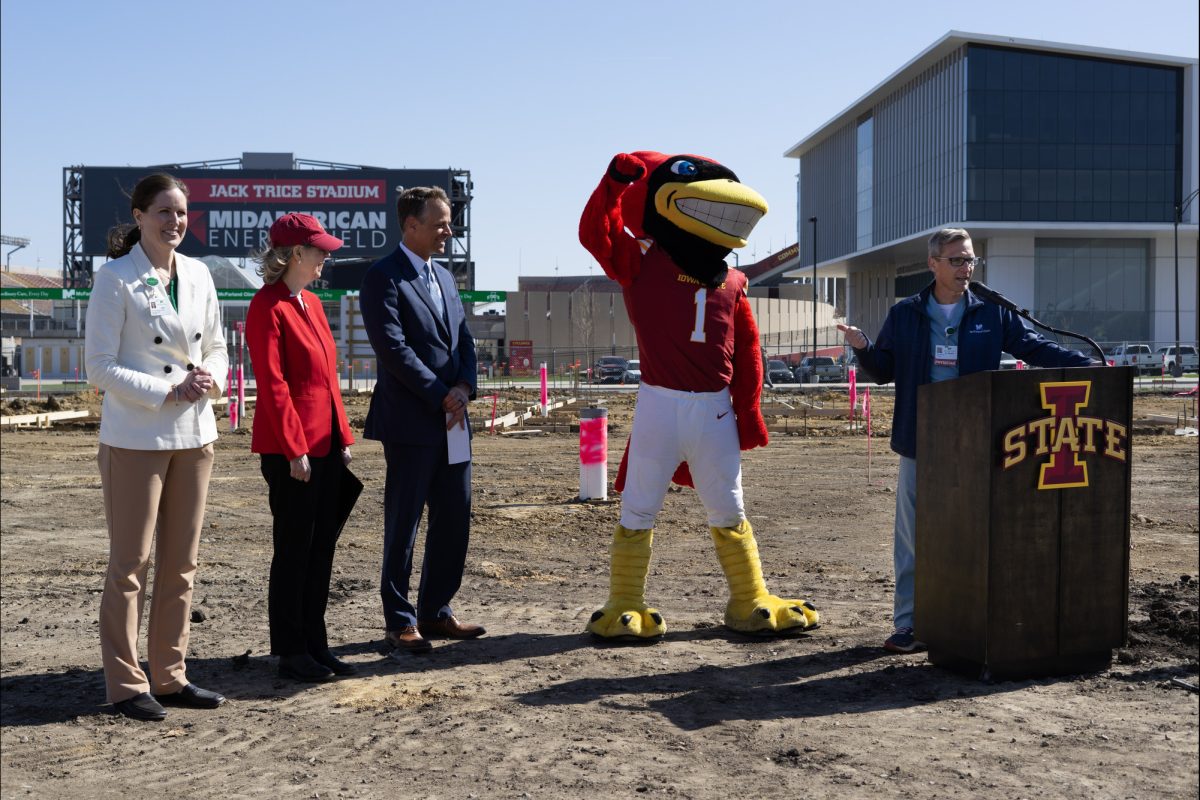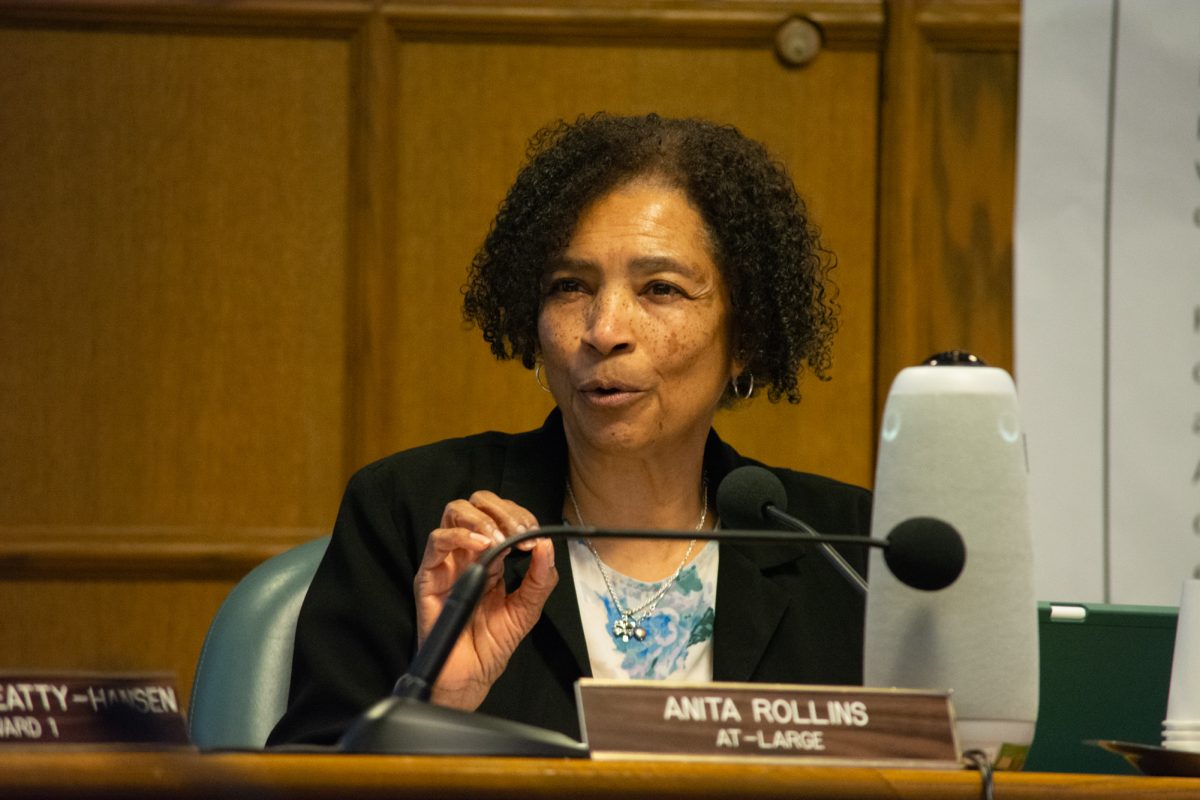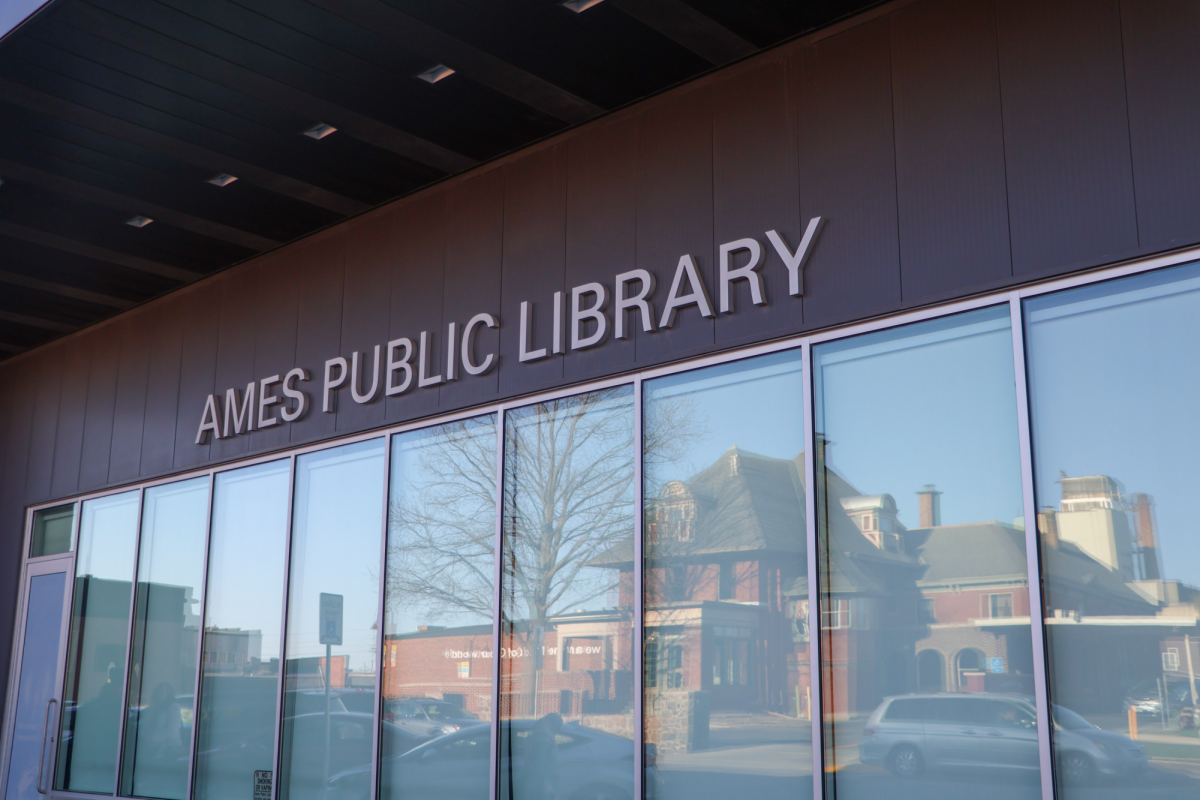President of Arizona State University shares insight on the future of higher education
Michael Crow, president of Arizona State University, who ran track for Iowa State and graduated in 1977, discussed his philosophy and vision for the future of higher education at a virtual event with President Wendy Wintersteen on Friday.
April 4, 2021
Michael Crow, president of Arizona State University, discussed his achievements in innovation and his vision for the future of higher education at a virtual event hosted by the Iowa State Innovation Program on Friday. The event consisted of questions asked by Iowa State President Wendy Wintersteen and questions from the audience co-moderated by Karen Kerns and Abram Anders.
According to Crow’s LinkedIn, he graduated from Iowa State in 1977 with a degree in political science and environmental studies. At the event, Crow said his experience at Iowa State was the foundation of many of his accomplishments.
“It turned out to be a fantastic, life-altering, unbelievable experience. Iowa State was so important to me because it was so open to new ways of thinking and I got involved in all these projects […] it was literally the most important thing that ever happened to me,” Crow said.
One of Wintersteen’s questions for Crow was why he decided to start the University Innovation Alliance, which Iowa State is a member institution of. Crow said a key part of innovation is the ability for institutions to work together. He then explained the idea behind his first book called “Designing the New American University,” in which he says American universities are essential to the success of American democracy. He started the University Innovation Alliance with the main goal of making higher education more accessible to people from all backgrounds.
According to the University Innovation Alliance website, “We share a sense of urgency about [making higher education more accessible] because we are public universities with a public mission. Higher education needs to do a better job of graduating students across the socioeconomic spectrum, particularly low-income students, first-generation students, and students of color. Raising graduation rates is imperative for individual social mobility and U.S. global competitiveness.”
Crow said one of his most influential policies at Arizona State was eliminating 85 singularly disciplined departments, schools and colleges and replacing them with transdisciplinary programs that are more applicable to modern society.
A notable example Crow referenced was eliminating the geology, astronomy, astrophysics and astrobiology programs and instituting the School of Earth and Space Exploration. Crow said the most important step in making these advancements was changing the culture of the school’s administration and faculty.
“The most important thing we did was we changed the culture of the university from a faculty-centric institution to a student-centric institution, and when we convinced the faculty that that was a more noble cause for us, everything changed,” Crow said.
Crow then discussed how he worked to accommodate Arizona State’s rapidly growing and diversifying student body. He encouraged the faculty and administration to adopt the mantra, “work to graduate everyone,” and worked toward this goal by modifying the curriculum to incorporate “adaptive learning courses” comprised of innovative methods of teaching that effectively aid the students’ learning and retention rate.
Crow said that since he joined Arizona State in 2002, the first-year retention rate has reached just under 90 percent and the four-year graduation rate has doubled.
“These are very difficult numbers to achieve, but we’re able to achieve them because of our focus on the individual,” Crow said.







